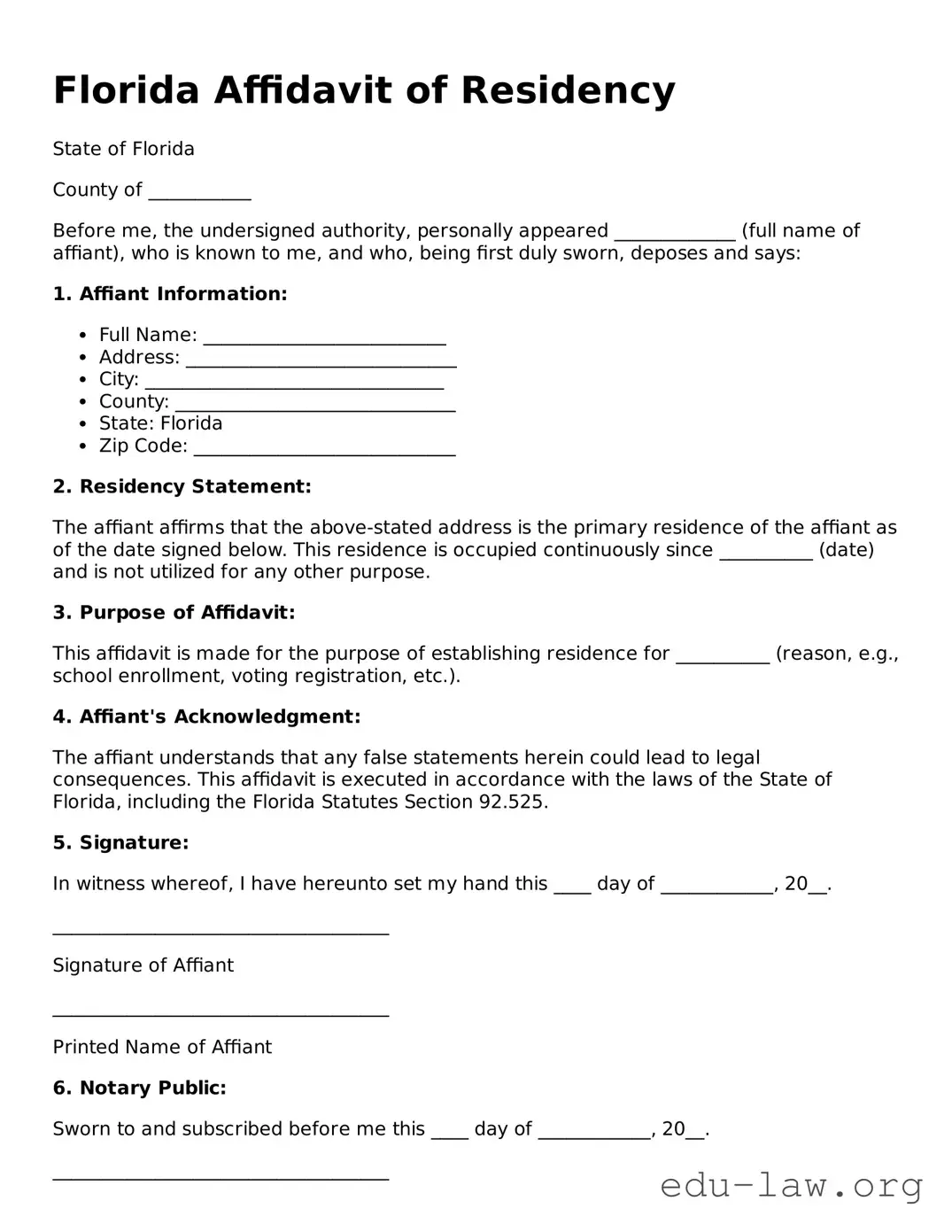Florida Affidavit of Residency
State of Florida
County of ___________
Before me, the undersigned authority, personally appeared _____________ (full name of affiant), who is known to me, and who, being first duly sworn, deposes and says:
1. Affiant Information:
- Full Name: __________________________
- Address: _____________________________
- City: ________________________________
- County: ______________________________
- State: Florida
- Zip Code: ____________________________
2. Residency Statement:
The affiant affirms that the above-stated address is the primary residence of the affiant as of the date signed below. This residence is occupied continuously since __________ (date) and is not utilized for any other purpose.
3. Purpose of Affidavit:
This affidavit is made for the purpose of establishing residence for __________ (reason, e.g., school enrollment, voting registration, etc.).
4. Affiant's Acknowledgment:
The affiant understands that any false statements herein could lead to legal consequences. This affidavit is executed in accordance with the laws of the State of Florida, including the Florida Statutes Section 92.525.
5. Signature:
In witness whereof, I have hereunto set my hand this ____ day of ____________, 20__.
____________________________________
Signature of Affiant
____________________________________
Printed Name of Affiant
6. Notary Public:
Sworn to and subscribed before me this ____ day of ____________, 20__.
____________________________________
Notary Public
My commission expires: _______________
Notary Seal:
